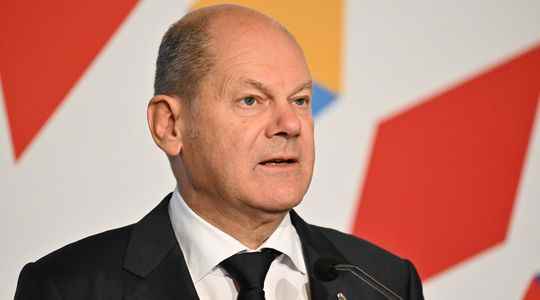“If Russia is a storm, China is climate change.” By this environmental metaphor, one of the heads of German intelligence, Thomas Haldenwang, made parliamentarians understand, in mid-October, the risks posed by Berlin’s economic dependence on the Chinese communist regime. Could Olaf Scholz be a climatosceptic? Despite the warning of his master spy, the German chancellor is making a one-day visit to Beijing this Friday, November 4, where he will meet President Xi Jinping.
Admittedly, Olaf Scholz, in a column published in the Frankfurter Allgemeine Zeitung, promised that he would not “do not ignore the controversies”. Jumbled up: the military threats against Taiwan, the persecution of ethnic minorities, in particular the Uyghurs, the proximity to Moscow despite the war in Ukraine and the fact that “the China of today is no longer that of it five or ten years ago”, especially after the “unambiguous” Communist Party Congress, which was held from October 17 to 22.
But the Chancellor may claim that he will be critical with Beijing, his visit serves above all the interests of the regime. This is primarily due to its timing. It comes just after a Congress where the liberals were definitively removed from the political bureau and the permanent committee, and which put an end to two rules supposed to correct the excesses of Maoism: the two-term limit on the post of supreme leader and the obligation to retire once at age 68.
Scholz did not want to go with Macron
“A visit by a political leader of the rank of Olaf Scholz just after this event has validation value for the regime, because it will be understood and presented as such by the Chinese media, underlines Mathieu Duchâtel, director of the Asia program at the Montaigne Institute. This is a huge political victory for Xi Jinping, which even echoes the diplomacy of the tributes of the time of the empires.”
In fact, to avoid playing into the hands of the regime, the Chancellor could have postponed this trip, which was all the more symbolic since it was the first to Beijing by a Western leader since the beginning of the Covid-19 epidemic. This is what the Elysée would have preferred, adding, above all, the symbol of a joint trip with Emmanuel Macron. The scenario was however rejected by the Chancellor, even if it meant putting a little more damage to a Franco-German relationship in the midst of a crisis.
This visit also fragmented Western unity vis-à-vis the communist regime. It is not viewed favorably by Washington, which is behind drastic restrictions on its exports of electronic chips to China. “This is yet another victory for Beijing, one of whose objectives is to sow discord and weaken the Western camp, analyzes Mathieu Duchâtel. This move seems to run counter to the recent dogma of limiting the dependence on China.”
Controversial Chinese acquisitions in Germany
In fact, Olaf Scholz defended the acquisition, by the Chinese group Cosco, of a quarter of the shares of one of the four container terminals of the port of Hamburg. And this despite the reluctance of the environmental partners of his government and the criticism of the American embassy. And he would be ready to give the green light to the proposed acquisition of the Elmos semiconductor factory by the Swedish Silex, owned by the Chinese group Sai MicroElectronics.
In both cases, the chancellery considers that there is no risk, in particular because the technology of Elmos would be outdated. “It is forgotten the interest of a China which, unlike a few years ago, faces more and more restrictions to invest in the West in critical infrastructures or technological niches, remarks Mathieu Duchâtel. Here again , it benefits from the positive signals sent to it by Germany.”
They are not the result of chance. China has been Germany’s biggest trading partner for six years, with trade worth 246.5 billion euros in 2021. And their interdependence continues to grow, as German investments hit a record 10 billion euros. euros that year. The trend therefore runs counter to the emancipation written into the contract of the current coalition.
Volkswagen, whose boss accompanies Olaf Scholz in China, is the best illustration of this desire to deepen the economic relationship. In 2021, two out of five group cars were sold in China. It even announced a 26% increase in its sales in the third quarter of 2022, concomitant with that of its turnover (70.7 billion euros over one year). Difficult, therefore, for Berlin, to give up such a market, at a time when its industrial sector finds itself deprived of Russian gas by the war in Ukraine. And sees its model, ultra-profitable, called into question.
